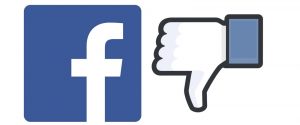iHEARTMEDIA is at it once again, this time trimming down news departments at radio stations in what appears to be an attempt to reduce expenses as they prepare to launch their initial public offering. The company was forced to file for Chapter 11 bankruptcy in March 2018 and are planning to use the net proceeds from the offering to pay off its debt.
Now as an old radio guy, I could get on my soapbox and preach how radio isn’t what it used to be (I’d be right, but that’s not the point). Check out this promo from NewsRadio 740 KTRH…
The point is things change. Over the past 50 years, media has changed from people turning to print for their information, followed by radio, television and now the internet.
With each passing new phase, the demises of the former media channels has been predicted with great gusto. The internet alone has been predicted to kill off newspapers, radio and television as we know it!
The Washington Post posted an op/ed piece in 2018 written by Douglas McLennan, founder and editor of ArtsJournal and Jack Miles, a Pulitzer Prize and MacArthur “genius” award-winning author that in part said…
Thomas Jefferson saw newspapers as so fundamental a democratic institution that they were the only alternative to repeated violent revolutions: “This formidable censor of the public functionaries, by arraigning them at the tribunal of public opinion, produces reform peaceably, which must otherwise be done by revolution.”
I wonder what Thomas Jefferson would have thought about radio, television or Twitter. Oh, and this was the same person who started a “partisan” (which is a nice way of saying “fake”) newspaper, the National Gazette, to attack his rival Alexander Hamilton and the policies of the Washington administration.
There is no doubt the newspaper industry is changing and faces serious challenges. In the same op/ed piece the authors claim…
Weekday print circulation has shrunk from a high of nearly 60 million in 1994 to 35 million for combined print and digital circulation today — 24 years of decline. Advertising revenue has cratered, falling from $65 billion in 2000 to less than $19 billion in 2016. Newsroom employment fell nearly 40 percent.
I do think it’s important to remember part of the issue is the growing number of media outlets in general. Long gone are the days when there were five – seven radio stations, three TV stations and one newspaper. The world of media has expanded to where nobody can get the kind of circulation or ratings they once enjoyed. It doesn’t mean they are going away, it just means that a Washington Post or CBS Evening News audience is being more and more split up and thus shrinking.
Which brings us back to IHEARTMEDIA and their plans to cut newsroom staff. The problem is, there is no money to be made in radio news. Many stations that brand themselves as NewsRadio, are mostly talk stations that offer a bare amount of morning news.
So, this should not come as a shock to anyone longing for the thrilling days of yesteryear when radio was king and and you turned on the receiver to find out what was happening in the world.
 Kudos to the Houston Chronicle for producing original reporting that makes a difference in our community. Their coverage of how the state of Texas funds public education has woken up lawmakers who are taking a serious look the way the school endowment is funded and what can be done to improve it.
Kudos to the Houston Chronicle for producing original reporting that makes a difference in our community. Their coverage of how the state of Texas funds public education has woken up lawmakers who are taking a serious look the way the school endowment is funded and what can be done to improve it.









